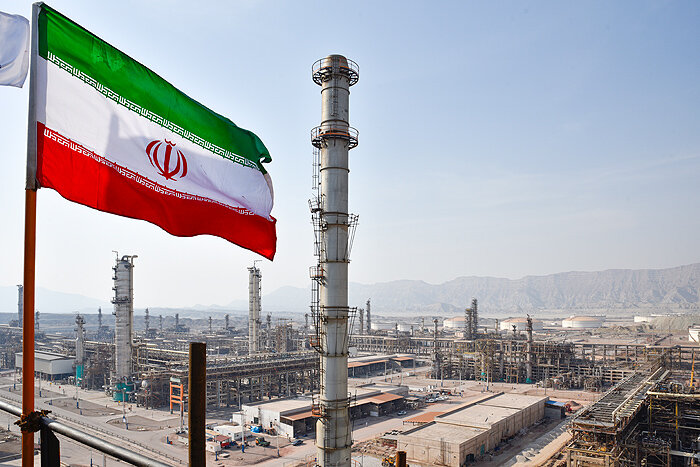Refining industry development for Iran’s stronger role in global energy market

TEHRAN- With the continued growth of the industrialization of countries, the need for energy, especially fossil fuels, has increased dramatically.
Iran's status as one of the countries with the largest strategic reserves of oil and gas in the world is of great importance.
With the development of its refining industry and the increase of oil and gas refining capacity in recent years, the country is trying to strengthen its role more and more in the global energy market at the same time as developing its domestic industries through more supply of feed.
National Iranian Oil Refining and Distribution Company, which is the main player in this due, by taking advantage of the capacities, scientific and technical power of domestic knowledge-based companies, is taking big steps to implement national plans for the development of the country's refining industry.
The daily refining of 2.2 million barrels of crude oil and gas condensate, the daily production of 100 million liters of gasoline and 112 million liters of gas oil are among the measures taken by this industry to ensure the security and stability of fuel supply for the domestic consumption market.
The Organization of Petroleum Exporting Countries (OPEC), in its Annual Statistical Bulletin 2022, has put Iran’s daily refining capacity in 2021 at 2.202 million barrels, indicating 1,000 barrels per day (bpd) increase compared to 2020.
Iran's refining capacity has increased by more than 480,000 bpd from 2011 to 2021, according to OPEC's Annual Statistical Bulletin. Iran's refining capacity in 2011 was reported to be 1.715 million bpd.
Despite all the external challenges like the U.S. sanctions, the Iranian oil and gas sector has been developing at a fast pace and the country is passing new milestones in this industry every day.
Various sectors of Iran’s oil and gas industry including exploration, production, processing, and distribution are all among the world’s top charts and the country is taking new steps to develop the industry even further.
Among different sectors of this industry, refining is a major one being seriously paid attention for development.
Back in September 2021, Oil Minister Javad Oji had said that the country’s oil refining capacity will be increased by 1.5 folds by the end of the current government’s incumbency (in four years).
He mentioned promoting the quantity and quality of the current refineries’ products and the construction of new refineries as some major plans of the Oil Ministry in the new government.
According to the defined schedule for the quantitative and qualitative development of existing refineries and planning for the construction of new refineries in the next four to five years, the country's daily oil refining capacity will increase by one and a half times to 3.5 million barrels, the minister stated.
“Following the improvement of the quality of petroleum products and the increase of the quality of gasoline and gas oil, which is very important for us in the field of environment, the discussion of quantitative and qualitative development plans of refineries is seriously on the agenda of the current government”, he added.
Iran has been also following new strategies to build more petro-refineries across the country and even to turn the country’s existing refineries into petro-refineries, since due to the country's benefit from oil and gas resources, the development of petro-refineries is much easier and relatively cheaper in Iran than other countries in the world, and the country can play a role in regulating the price of petrochemical products in the world due to its proximity to energy sources and its capacity for the development of petro-refineries.
On August 1, major Iranian banks signed memorandums of understanding (MOU) with domestic companies to provide $17.8 billion for the construction of a large-scale refinery and a petro-refinery in southern Iran.
As reported, the MOUs for the funding of Morvarid Makran Refinery and Shahid Ghasem Soleimani Petro-refinery, each with a total processing capacity of 300,000 barrels per day (bpd), were signed by the representatives of the mentioned entities in a ceremony attended by President Ebrahim Raisi and Oil Minister Javad Oji.
The projects are scheduled to be completed within five years.
Creating added value, preventing the sales of raw materials, preventing the import of gasoline, increasing the country’s refining capacity and production of petroleum products, creating jobs and supporting domestic knowledge-based companies, and guiding liquidity towards productive investment, are among the major goals of the said projects.
Due to the country's benefit from oil and gas resources, the development of petro-refineries is much easier and relatively cheaper in Iran than other countries in the world, and the country can play a role in regulating the price of petrochemical products in the world due to its proximity to energy sources and its capacity for the development of petro-refineries.
